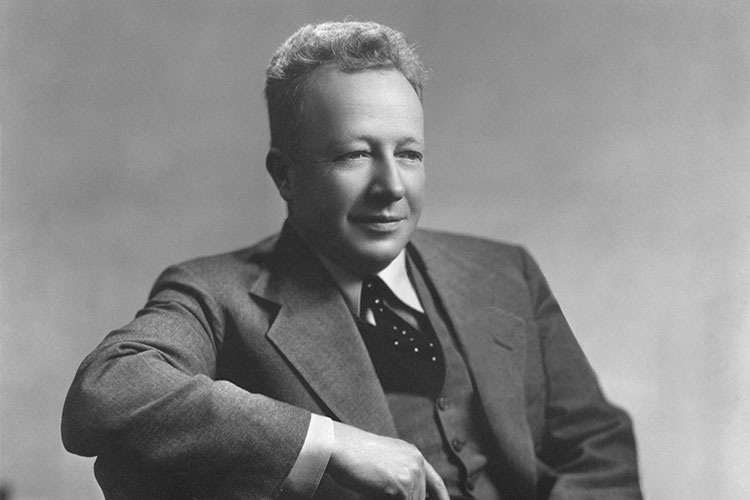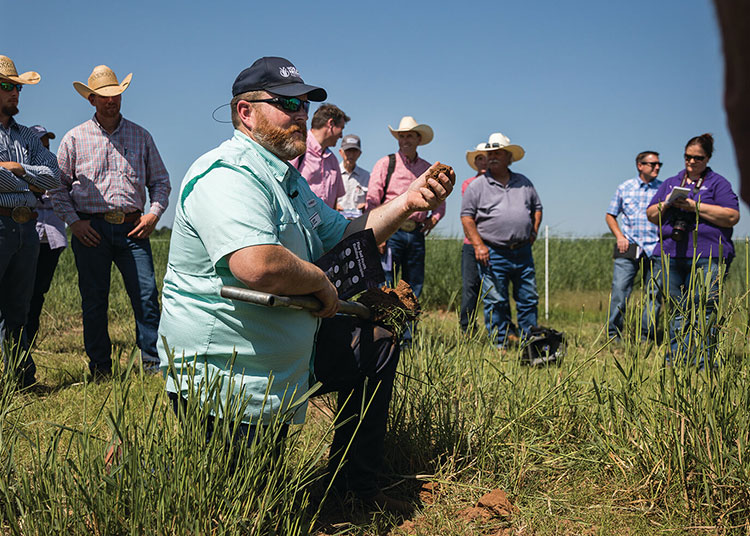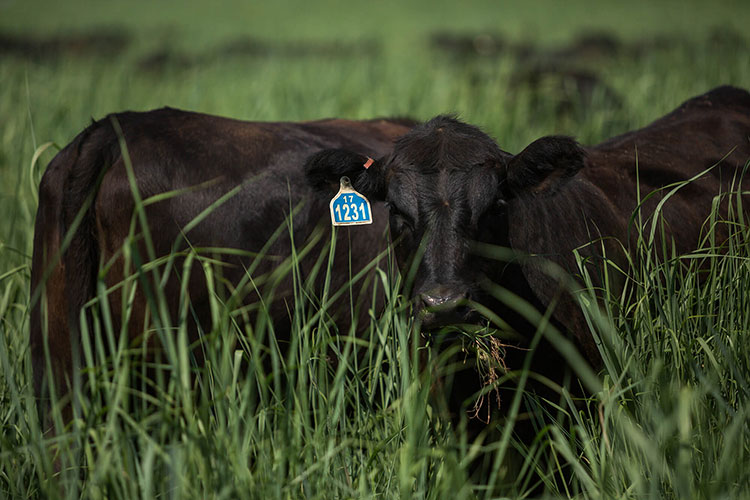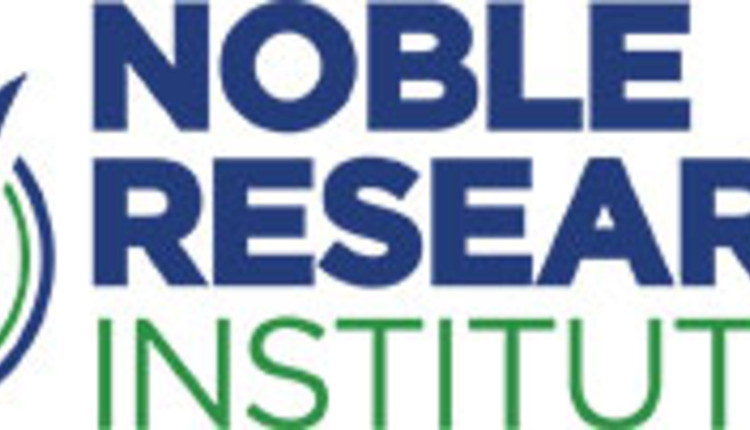Noble Research Institute Celebrates 75 Years |
|
|
 Lloyd Noble, an Oklahoma oilman and philanthropist, founded Noble Research Institute in 1945 as a resource to help farmers and ranchers rebuild the soil. Saturday, Sept. 19, 2020, marks the 75th anniversary of Noble Research Institute and the beginning of a year-long celebration of agricultural producers, the land that provides for our collective well-being, and the organization’s future. Since its founding in 1945, Noble Research Institute has supported farmers and ranchers through education, research and consultation as they steward the nation’s grazing lands and soil.  Noble Research Institute continues to build on its legacy by developing programs to help ranchers regenerate their grazing lands and achieve lasting financial stability. Founder and philanthropist Lloyd Noble created his organization as a resource to work beside individuals to rebuild the soil and provide lasting stability for an economy in the aftermath of the Dust Bowl. During its 75th anniversary year, Noble will celebrate the importance of the land, recognize farmers and ranchers who care for this valuable resource, and highlight their contributions to the public at large through social media campaigns and special video tributes. “For 75 years, Noble’s mission has been to walk alongside farmers and ranchers, providing information and assisting them in the critical role they play for society,” said Steve Rhines, president and CEO. “During this anniversary year, our celebration will focus on their impact on each of us, while we — as an organization — continue to grow and evolve to meet the challenges of tomorrow.” As the organization looks to the future, it will continue to build on its legacy. Noble today is developing programs to help ranchers regenerate their grazing lands and achieve lasting financial stability to enable long-term planning and action. Specifically, Noble will be focused on helping producers implement long-term, regenerative ranching practices.  Cattle are an essential part of the nation's 655 million acres of grazing lands and play roles in building organic matter and resilience within the soil. Regenerative ranching is the process of restoring degraded soils by using practices based on ecological principles. Regenerative ranchers work with the natural environmental system — comprising soil, plants, water, animals and the humans that manage them — to build organic matter and resilience within the soil. Healthy soil has less nutrient run-off and erosion; sequesters atmospheric carbon, which combats climate variability; and, because of its ability to better hold water, serves as a management tool for both drought and heavy rain. Just a 1% increase in organic matter helps soil hold 20,000 gallons more water per acre. Building this invaluable resource below the ground also means producers generate higher quality food for consumers and enjoy more productive land with more stable economics. Today, there are about 655 million acres of public and private grazing lands in the United States. It is estimated that up to 70% of such acres are in a degraded state. This degradation has a broad impact on each of us as well as the environment. Degraded lands impair the quality of our produced food, interferes with fresh water supplies, increases the opportunity for land erosion, and limits the soil’s ability to capture and store atmospheric carbon.  As we look to the future, we imagine our nation’s cattle producers having the knowledge and tools needed to rebuild our country’s grazing lands and not only provide for their families but pave the way for the next generation of producers,” Rhines said. “While we absolutely support their continued delivery of nutritious and affordable food to the world’s plates, our shared vision will be to leave the land better at sunset than it was at sunrise. We are proud of our legacy and honored to have been entrusted to carry forward Mr. Noble’s vision. It is what provides context and excitement for our next chapter of transformational work.” |
